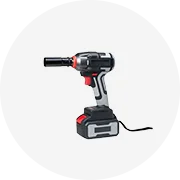
Wheel Balance Machine 3d Wheel Alignment Tire Changer Machine And Tire Balancer Combo For Vehicle EquipmentJARAT

Repair Workshop Equipment Combo 3d 4 Wheel Alignment Machine Full Set Wheel Balancer And Tire Changer














An alignment machine is an integral part of the automotive industry, as it is responsible for ensuring that a vehicle's wheels are properly aligned. This piece of equipment is crucial to maintaining the safety, efficiency, and longevity of any vehicle. Here, an in-depth look into its various types, applications, and materials will be explored.
Various kinds of alignment machines exist in the market, each designed to cater to different needs and vehicle specifications. The vehicle alignment machine is the common type and is used for everyday automobiles. Its counterpart, the heavy-duty alignment machine, is specially designed for larger vehicles such as trucks and buses, which require more powerful and robust machinery. There are also portable alignment machines, which offer the convenience of mobility, making them ideal for roadside assistance and remote workshops. Lastly, the tire alignment machine is a specialized type that focuses on the alignment of the vehicle's tires, ensuring they are properly balanced and in sync.
Alignment machines serve a critical role in the automotive industry. They are used during vehicle assembly to ensure that the wheels are correctly aligned before the vehicle is dispatched from the factory. Any misalignment can lead to uneven tire wear, decreased fuel efficiency, and potential safety issues. Therefore, regular checks and adjustments using an automotive alignment machine are necessary for vehicle maintenance. These devices are also used in repair and servicing centers to rectify any alignment issues that may arise over time due to normal wear and tear or accidents.
The materials used in the construction of alignment machines are as vital as their operational function. These machines are commonly built from top-grade steel, acclaimed for its robustness and longevity. This ensures that the machine can bear the vehicle's weight and withstand the strenuous wheel alignment process. However, some components might be crafted from aluminum or other lightweight materials to improve the machine's mobility.
Regardless of the material chosen, these machines are designed for durability, considering they undergo frequent use and substantial stress. Thus, the thoughtful selection of materials, from robust steel for enduring weight and stress to lightweight aluminum for enhanced portability, ensures that alignment machines cater to a wide array of needs, delivering true performance under demanding conditions.
An alignment machine is an essential tool in the automotive industry. Its various types, applications, and construction materials make it a versatile and indispensable piece of equipment, ensuring that vehicles are safe, efficient, and in optimal condition.